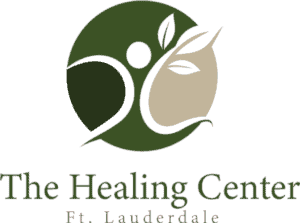Watching a loved one grapple with addiction is an emotional and challenging experience that requires compassion, understanding, and commitment. Addiction is a complex and chronic disease that not only affects the individual but also has far-reaching consequences for families and communities. In this comprehensive guide, we’ll explore effective strategies on how to help a loved one overcome addiction, offering support, encouragement, and practical steps to guide them on their journey to recovery.
The Importance Of Education
The first step in aiding a loved one with addiction is to educate yourself about the nature of addiction as a disease. Understanding its signs, symptoms, and underlying causes will enable you to approach the situation empathetically and comprehend the challenges your loved one is facing. Knowledge empowers you to engage in informed conversations about addiction and recovery.
How To Maintain Open and Non-judgmental Communication
Maintaining open communication is vital when addressing addiction. Approach your loved one with empathy, expressing concern rather than blame or shame. Let them know that you are there to support them on their journey to recovery. Avoid confrontations, as these can be counterproductive, and instead create a safe space for your loved one to share their thoughts and feelings.
How to Help a Loved One With Addiction And Remain Supportive
Support plays a crucial role in a person’s recovery journey. Attend therapy sessions or support groups with your loved one if they are comfortable with it. Show encouragement, celebrate milestones, and be patient as they navigate the challenges of recovery. Knowing they have a reliable support system can significantly impact their motivation to overcome addiction.
Setting Boundaries
While being supportive, it’s essential to establish clear boundaries to protect yourself and maintain a healthy relationship. Communicate what behavior will and will not be tolerated, and be consistent in enforcing these boundaries. This not only ensures your well-being but also sends a clear message about the importance of accountability in the recovery process.
Prioritizing Self-Care
Taking care of yourself is equally crucial when helping a loved one through addiction. Ensure you have a strong support network, seek counseling if necessary, and prioritize your well-being. Practices such as individual therapy and joining support groups like Al-Anon can provide valuable outlets for your emotions and experiences.
Seeking Professional Help
Seeking professional help is a critical step in the recovery process. The Healing Center, a reputable addiction treatment center located in Fort Lauderdale, FL, offers a range of clinical care options tailored to each client’s unique needs. These options include:
- Detoxification (Detox): The initial step in addiction treatment involves supervised medical detox to safely remove substances from the body. The Healing Center provides a safe and comfortable environment for individuals to undergo detox, minimizing withdrawal symptoms and medical risks.
- Residential Treatment: Also known as inpatient treatment, this provides a structured and supportive environment for recovery, addressing the physical, psychological, and emotional aspects of addiction. The residential program at The Healing Center embraces a holistic approach to healing.
- Partial Hospitalization (PHP): An intermediate level of care, PHP offers intensive treatment during the day while allowing patients to return home in the evenings. It is suitable for individuals who require ongoing support but can manage daily responsibilities.
- Intensive Outpatient Treatment (IOP): A flexible option that allows individuals to receive treatment while continuing to live at home, IOP at The Healing Center includes therapy, counseling, and support to help clients maintain sobriety.
- Outpatient Treatment (OP): This offers ongoing support and therapy on a less intensive basis, ideal for individuals who have completed higher levels of care but still need counseling and support to prevent relapse.
- Staging a Professional Intervention: Staging a professional intervention is a compassionate and carefully orchestrated process aimed at helping a loved one find the path to recovery. It involves a team of trained professionals, family members, and friends coming together to express concerns and support in a non-confrontational manner. A professional interventionist guides the conversation, ensuring it remains constructive and focused on encouraging the individual to seek treatment. Though emotionally challenging, staging an intervention can be a crucial turning point, offering hope and a lifeline to a brighter, healthier future.
Find Help For Addiction In Fort Lauderdale, Florida
Helping a loved one with addiction is a journey that requires patience, understanding, and a commitment to their well-being. By educating yourself, fostering open communication, offering unwavering support, setting boundaries, prioritizing self-care, and encouraging professional help, you can play a crucial role in your loved one’s recovery. The Healing Center stands as a beacon of support, providing comprehensive clinical care options tailored to individual needs. Remember, recovery is possible, and with the right approach and professional guidance, your loved one can embark on a transformative journey toward healing. Contact our admissions team today to learn more about how we can help your loved one find recovery today.






